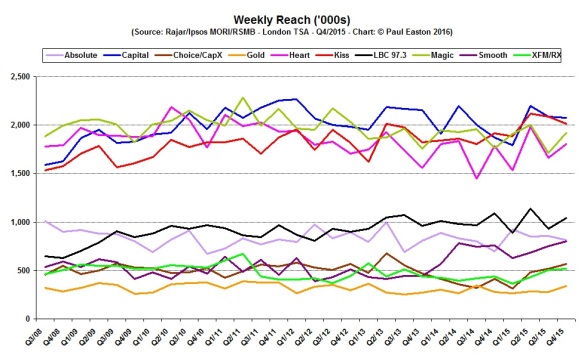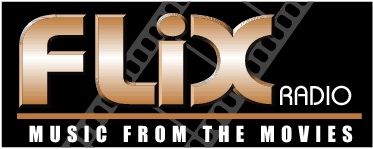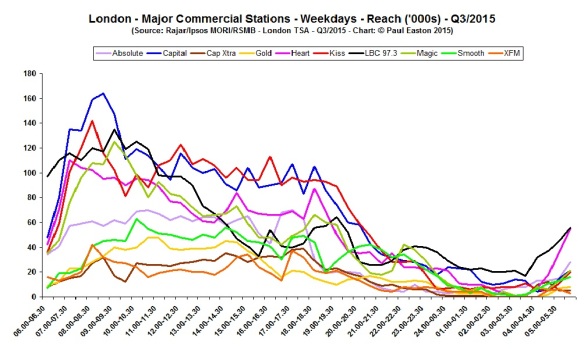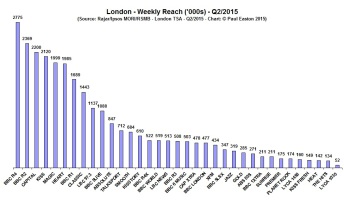 In the aftermath of the revelations about Jimmy Savile a number of high-profile arrests were made. Some, including Rolf Harris, Stuart Hall and Max Clifford, received prison sentences. Others, such as Coronation Street’s William Roache walked free from court or had their cases dropped.
In the aftermath of the revelations about Jimmy Savile a number of high-profile arrests were made. Some, including Rolf Harris, Stuart Hall and Max Clifford, received prison sentences. Others, such as Coronation Street’s William Roache walked free from court or had their cases dropped.
Broadcaster Paul Gambaccini was arrested for ‘historic sex offences’ early in the morning of 29th October 2013. Although police handed the papers to the Crown Prosecution Service on 10th February 2014 it was not until 10th October 2014 – almost a year later – that he was told no further action was to be taken.
During that year, which he describes as ‘twelve months of trauma’, he remained on police bail; and was persistently rebailed every few months without ever having to report to the designated police station. In some cases he discovered this from the media rather than official sources.
He was never charged.
“Arrest a journalist and he will keep a journal.”
Paul’s journal is now a compelling and hard-hitting book which chronicles his highs and lows, frustrations and anger, while also peppered with musical references and light-hearted comments as he helps us live through his experiences. At times these can be very dark, for both Paul and his husband Chris.
I resolved to survive and managed to lose a stone. But every day I suffered six or more rage attacks, which resulted in a fear of walking across bridges because I did not wish to find myself halfway across The Thames from my South Bank home in the midst of a rage attack.
He describes himself as having been used as “human flypaper” by the Crown Prosecuting Service in the hope that news of his arrest might bring forward further accusations. None ever came and the case against Paul was eventually dropped because of ‘insufficient evidence’.
One worrying aspect of Operation Yewtree is highlighted during a conversation with comedienne and broadcaster Sandi Toksvig:
I explain that I first learned that the operation does not demand evidence, only people who agree, when Yewtree rang Liz Kershaw and asked if she wished to make an allegation against Dave Lee Travis. Sandi says, “They phoned me and asked if I would like to complain about anyone.”
“Anyone?” I repeated, genuinely shocked.
“A-n-y-o-n-e,” she replied slowly.
After having been told that no further action was to be taken he learns that the police had already been investigating the matter for six months before his arrest and the case had been dropped. It was only after a second person was identified that Paul was arrested.
On Saturday 15th November 2014 Paul Gambaccini returned to BBC Radio 2 where, once more, Saturday was “our day for America’s Greatest Hits.” Later that month he also resumed his role as presenter of Counterpoint on BBC Radio 4 covering the semi-finals and the final; Russell Davies had been covering the earlier heats.
The cost to Paul, though – both financial and personal – has been high and he has discovered, sometimes surprisingly, who his true friends are.
Many people, in expressing their sympathy for what I had to undergo have emphasised the element of loss. They have asked how much money I have lost. Considering both cancelled income and legal expenses, the financial total is more than £200,000. BBC Radio stopped paying me the moment I was named in the press… I became instantly unemployable, and received no new offers…. I had no income at precisely the time I had to pay tens of thousands of pounds in legal expenses, none of which I can ever reclaim under English law.
Most of my long-term relationships with organisations were also lost. Charities I had helped to found or fund ignored me. The political party I had publicly supported, for which I raised funds for over a quarter of a century, shunned me. Only five organisations stood by me. I will support them for the rest of my life.
There is a greater loss. I have lost my faith in the British justice system. No one loves a country more than someone who has chosen to live there. When I came here from America at 21, I believed Britain had the world’s greatest culture, both high and popular. I was sure Parliament was the greatest legislature in the English-speaking world. Imagine how much I loved this country. Imagine my disappointment when it betrayed, psychologically tortured and abandoned me. My unqualified love for Great Britain has been qualified.
Great Britain persecuted me from October 29, 2013, to October 10, 2014. Its agents entered my home in the middle of the night, took away my possessions, arrested me on trumped-up allegations, disgraced me in the national media, deprived me of employment and kept me on bail for 12 months even though they knew they had no case against me.
These are the actions of a totalitarian state. But the most amazing thing is that no one involved thinks they live in a totalitarian state. They are oblivious to the roles they played in my persecution. This includes police officers, journalists, the CPS and the organisations that shunned me for fear of taint.
None of them originated the witch-hunt, but all went along with it because to resist it demanded more courage than they could summon.
The people of Great Britain have always been wonderful to me. They gave me a home, a quality education and a career beyond my dreams. They were personally kind whenever I met them. They deserve better. I hope they fight for it. I hope they get it.
They said it couldn’t happen here. It happened to me. Unless there is reform, it will happen again. It could happen to you.
What are you going to do about it?
‘Love, Paul Gambaccini. My Year Under The Yewtree’ is published by Biteback Publishing.
* The Yard Went On Forever was the title of a 1969 Richard Harris album written and produced by Jimmy Webb. Paul used it as the subject of an email to Elton John in January 2014 as he felt it was an apt description.










 It was 15 years ago today that I became a ‘DAB pioneer’ as Programme Director of FLIX RADIO, which launched on the Coventry multiplex.
It was 15 years ago today that I became a ‘DAB pioneer’ as Programme Director of FLIX RADIO, which launched on the Coventry multiplex. We didn’t have ‘proper’ studios as such. All of FLIX came from the rack on the left of the picture, which contained the computer servers as well as the necessary bits and pieces for providing the webstream. There was also a keyboard and monitor on an adjoining desk.
We didn’t have ‘proper’ studios as such. All of FLIX came from the rack on the left of the picture, which contained the computer servers as well as the necessary bits and pieces for providing the webstream. There was also a keyboard and monitor on an adjoining desk.























